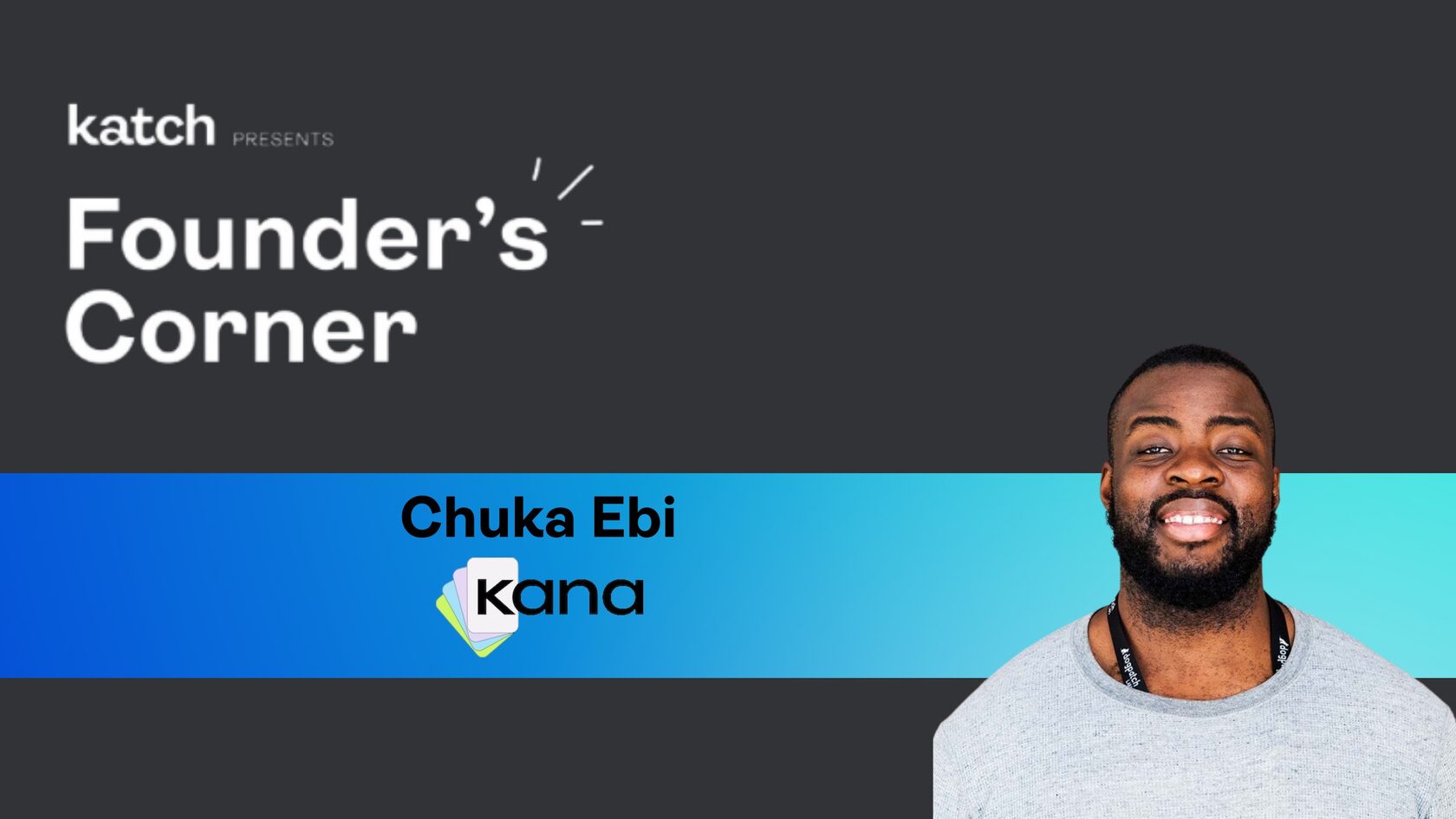Ales: So, what problem are you working on right now, either as a founder or the company as a whole together the team.
Chuka: So, as a founder I'm working on how to support a rapidly growing team, and how to do that effectively. We're generally co-located. There are four of us in London and two of us internationally, one in Armenia and one in Dublin, so they can fly in and it’s not that big of a time difference. So, I ask myself “how do I support a growing team”. We're a team of six. So that's pretty cool, but it comes with its own set of challenges. As a team, we're working on releasing our first product. So, we're building out right now and we're going into a private beta. So, it’s a bit of a scramble. All hands-on deck. a hot hands-on deck just looking to get that out in different ways. So, we’ve got a founder associate working on growth, content that we can put out, engineers working on building a dashboard. I'm even writing code! So yeah, it's kind of a whole all hands-on deck situation right now.
Ale: That's awesome. But that's the best. This is the best stage. I've been told. Every stage has its challenges, but this is probably one of the most fun where we get to be extremely involved with the evolution of the product and exactly what we're building. So, what gets you out of bed in the morning?
Chuka: I think knowing that what we're building now and there is a future that we want to create is really awesome to me. But I see a world where anybody can have the tools and resources to find the best way to monetize their products, much the same way. The most successful companies on the planet do - like Intercom and Shopify. And so, every day what we do just gets us an inch closer. That is really exciting to me. and how to do it. I built this team purposely for the fact that I want to go work with them every day. I'll actually want to like hang out with them afterward. But it's like people I can just go have conversations with after lunch. I'm very much a loner, I like to print something myself. So, it's like coming to work every day is cool. And I did that purposely because I'm really strongly believe in culture, the culture of building. We’re going to be spending most of the hours of the day together, so why don't make it fun?
Ale: Exactly. Might as well enjoy it while you can if you can make it that way. I love working remotely and the flexibility it gives us, but I am a people person. I love being surrounded by people. So, this is the hardest part for me I'd say. What's one piece of advice that you offer someone who's trying to start their own company?
Chuka: I'll give focus on a problem that you would solve even without any money. So, I've seen a lot of founders come into this game right now and you can just tell it’s just for getting funding or being seen as a founder. But then they don't realize how hard it is to build. It's not just building a product. It's building a business, building a team, the shareholder like investor relations should create shareholder value, and also building the product. I see a lot of people, no matter how big their team is, claiming to be a sponsor or a founder, but they don't realize that and treat it like it’s a job and it's miserable. They're miserable, and they hate it. And I'm like, Well, honestly, I can see why but like, I'm a solo founder. And the only reason I kept going where I did is because I really believe the problem I want to solve aligns with the values I have as an individual. Even if I didn't have the money, I'll go work somewhere and I'll still be building this in my own time. I'll try and try to solve it again. And that's what gets me out of bed in the morning. That's why I'm excited to do this every day. That's why I don't work the hours just for the sake of work. The hours, like I don't do that, it’s an American thing. You’re just working for the sake of working.
Ale: Really, really problematic.
Chuka: You're coming in like “Why do you care about this problem?” When I don't hear anything compelling enough to me or like, maybe that's something compelling rises up - “I had this idea or did something that” I'm like, “Alright, I don't know how far you’ll go. But I know you’ll commit to it.”
Ale: That's yeah, that's a really great piece of advice, especially just recognizing the road that founders take. It's not, I think, what people perceive or what the media perceives, what stories most of the people have access to from what companies exist. It all seems like a kind of sunshine and daisies journey. And there are a lot of really tough points in the road where if you really don't believe in what you're building, it's going to be tough to get over that over that rational road. So, your current team, you have six people, you’re remote but hybrid?
Chuka: Hybrid, where it's mostly in person, but we do have two international people and I would bring them in here in a heartbeat. We do have an office, but we are remote friendly like someone's work from home a few days a week. We can work remotely for two weeks but I predominantly will be in person. It's a personal opinion, by the way, but at the earliest stages of a company, for me, building, being in person, gives you some bounds over remote working just in communication, overhead, ideation, creativity, things like that.
Ale: 100 percent. We, the leadership team, got together two weeks ago in Barcelona. Our CTO was based in Madrid. It was the first time I met him in person and it wonderful. We all got to really collaborate together, and it made me really wish that we were an in-person team because, especially at the stage where there's so much iteration and there's so much brainstorming that happens, being able to quickly connect with your colleague has huge benefits. When you're in the same room it’s a lot easier. It is a lot easier because we're in different time zones. waking up to the alerts or waiting for the other person to wake up or being like “hey, do you have a quick second now?”. Which is why we're also building Katch, so we can send someone a Katch when they're available, they're able to connect. There is a benefit, I feel, in creating a globally distributed team in that we have access to some of the best talent in the world, wherever they are, and also giving people who may not be centered, I'm based in Santa Barbara, the access to talent. Those people are not here, or people may want to be there's the restrictions that different locations create for some people. So yeah, I see the benefits to both. But I agree at the stage that we're at it is a huge benefit to be able to be centrally located for a team.
Chuka: In the reasons you use support, being in person on remote makes a lot of sense. I feel I would love to get there when we're ready to support those kinds of teams. I'm bringing them in but yeah, it's like we try to actually have our engineer in New York, which is so hard.
Ale: Yeah. So, five years from now, what impacts would you like to have made?
Chuka: Um, professionally, Chrono becomes the default layer of any software stack on the planet. So, if you look at it, like you're always going to build a new product, they will go to AWS or something for computation. They'll go to Stripe for payment processing and billing comes to us to monetize their app in whatever they choose. And we have the slide right there in that stack. Personally, just building a team that loves coming to work together every day. I don't mean that in the way listed “number one best place to work”. That means I know when people come in, they're really excited about coming in. It's not about me saying that they're excited like if you talk to any of them on the street, they'll know that it's something I believe in. One of my biggest weaknesses as a founder is I hate publicity. I hate it with a passion. I hate it.
Chuka: You are the number one salesperson. I don't like that publicity. I feel like it's very self-serving. I want the product to speak for itself. I like having other people know that we are cool but also I am actually enforcing that. One of the things I'm happy about is that nobody has said ‘Oh, you lied to me’ or ‘It wasn't what I thought it would be.’ We said it was exactly what it was and I know they can trust me on that. So, creating that sense of an environment where they can be trusted and happy. When I say happy, I don't mean everyone's smiling all the time, but you know that they're happy to be here, so to speak.
Ale: Yeah, those are great, great points.
Chuka: I may not be smiling all the time because I’m working hard. There were at least one or one or two tears and a few curse words.
Ale: At the end of the day, if you think about the bigger picture, it's the small little pieces that can be tough, but ultimately, you're really happy to be there. You're happy to be creating this to solve this problem and to create this monetization platform that will essentially change the world. And yeah, people should be smiling from excitement around building that. I guess there are days that I'm not always smiling and because it's definitely tough, but I think really being able to share the motivation and excitement for what we're building within the team is really important, especially for us as leaders. It’s not to say there aren't going to be tough days or we aren’t trying to get over a specific challenge or hurdle right now, but we all are dedicated to what we're building, and we all want to be here, and I think that’s something to smile and be pumped about.
Chuka: Absolutely.



